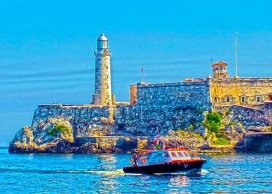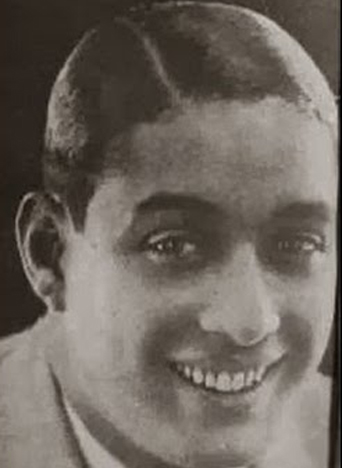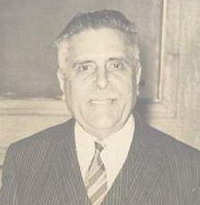
Havana ephemeris. October 16.
1939. Fernando Collazo died in Havana.

Singer and composer, he founded the Septeto Cuba, which was the second group of its kind that incorporated the piano. He directed the "Maravilla del Siglo" Orchestra. In his artistic career with his group he alternated with Ignacio Piñeiro's "Sexteto Habanero y Nacional".
In 1929 with the premiere in Matanzas of the first danzonete “Rompiendo la Rutina” by Aniceto Díaz and Fernando Collazo, he was the first to sing it in Havana with the Gray Orchestra, under the direction of Armando Valdés Torres. With this interpretation he achieved his definitive consecration as a singer.
He was born in the town of San Antonio de los Baños on August 21, 1902.
1955. The musicologists Olga de Blanck and Pilar Martín opened the Hubert de Blanck Theater Hall, located on the upper floor of what was then the Hubert de Blanck National Music Conservatory, which was founded in 1885.

The first theatrical performance offered in its hall was with the Cuban actress Raquel Revuelta with the play Bewitched by Jhon Van Drutten directed by Antonio Losada. Starting in 1991, the Hubert de Blanck Company emerged, which performs its functions in that theater.
It is currently the headquarters of the Teatro Estudio theater company.
1964. Pedro Kourí Esmeja dies in Havana.

Born in Haiti on August 21, 1900, his life and work unfolded in Cuba. In 1925 he finished his medical degree.
Outstanding man of science he conducted special studies on the discovery of rare eggs found in human feces.
All this work directed him to the enrichment of parasitology teaching material, which allowed him to directly prepare sections of parasitized tissues and adult parasites. He did significant teaching work. He organized laboratories, created the Carlos Juan Finlay Museum of Parasitology and linked teaching activity with practice.
He also wrote a lot, since everything he researches he used to publish. The prestige achieved by him in the development of the chair of Parasitology meant that in 1937, by agreement of the governing board, the Institute of Tropical Medicine was created, which is currently identified with his name. Due to his notable contributions in this sphere, he came to be cataloged as the father of Cuban parasitology.
1978. Salvador Massip Valdés dies in Havana.

With the contribution of this outstanding man of science, the teaching of geography reached its fullness, as he introduced new learning methods.
He developed work excursions in rural areas, and placed man among the components of the natural environment, in order to understand the importance of history and evolution. He changed the descriptive and rote approach of traditional geography, for a comprehensive and humanistic analytical approach and endowed it with a creative methodology, appropriate to each of the phenomena under study. He bequeathed a body of more than a hundred publications mainly related to the science that he loved so much.
He also served as ambassador and in 1962 he was one of the nine founders of the National Commission of the Cuban Academy of Sciences.
His birth took place in Puerta de la Güira, Artemisa, on April 19, 1891.